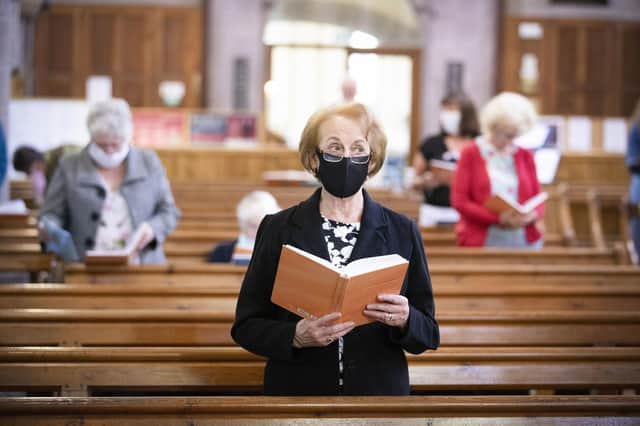Emergency powers can be so hard to relinquish - Andrew Stevenson


Scottish Ministers currently have a general power to make public health protection regulations under Schedule 19 of the Coronavirus Act 2020, a statute of the UK Parliament, and under legislation from the Scottish Parliament, also from 2020. Significantly, these measures have inbuilt time limits, after which their key provisions will expire if not actively renewed.
This inclusion of what are sometimes known as sunset clauses acknowledges that the times have been exceptional, indeed unprecedented. The Coronavirus (Recovery and Reform) (Scotland) Bill, published at the end of January, would make permanent some key emergency powers held by Scottish Ministers under the 2020 Acts. The crucial difference is that there is no sunset clause covering the types of measures that have so radically impeded people’s enjoyment of normal life.
Advertisement
Hide AdAdvertisement
Hide AdThe 2022 Bill would amend the Public Health etc (Scotland) Act 2008 to allow Ministers these same powers but with the distinction that future restrictions thereby imposed could endure permanently and without any regular review by Parliament. They would not necessarily lapse by default, as now.


As we all know, public health regulations have fettered our exercise of the most basic of liberties, prohibiting gatherings and imposing restrictions on persons and premises. There is no good reason for making permanent this expansion of executive power. Whilst it could be argued on medical reasons that existing temporary mechanisms be extended beyond March 2022, it should surely not become the default position given the potential for these regulations to override the usual exercise of human rights of assembly and freedom.
Covid-19 should not trump everything. We need to be very wary of legal measures which permanently entrench the state’s power to suspend our rights and freedoms in the name of public health or safety. Despite the lack of any pre-existing laws to enable the government to make these regulations the primary and then the secondary coronavirus legislation was put in place swiftly and effectively. Surely a future pandemic or outbreak could be met as easily and efficaciously.
The greater the powers possessed by any government the greater the risk of over-zealous or unwarranted interference with the rights of citizens. Nobody can have been comfortable with the sight, common in 2020, of Poileas Alba, often sitting in cars, patrolling parks and picnic sites and apprehending ordinary folks seeking to walk a dog or enjoy the outdoors.
Consider too that exactly a year ago it was illegal to gather for any public worship in Scotland. This blanket ban would not have been out of place in the 1680s. Thankfully the legality of such a clumsy and oppressive law was challenged in an action of judicial review by a number of churches (although not the Church of Scotland) and, in an admirable show of solidarity, Canon White, a Roman Catholic priest. The case, Rev William Philip and others v Scottish Ministers, resulted in defeat for the state, Lord Braid ruling amongst other things that the measures were a disproportionate interference with the petitioners’ rights of religious worship under Article 9 of the European Convention of Human Rights.
Emergency legislation introduced in response to the Covid outbreak at the start of 2020 was, in the main, well-drafted and reasonably measured. But it was supposed to be exceptional and provisional and a response to a specific threat to public health. There are bound to be further health crises such as the influenza pandemic of 1918 or AIDS in the 1980s, and when these emergencies arise they should be dealt with as the particular circumstances justify.
There is insufficient evidence that Covid will be a permanently serious problem. Until there is clarity, emergency measures should be monitored and subject to proper scrutiny and review. Unfortunately, unlike Cincinnatus, many rulers have trouble relinquishing emergency powers.
Andrew Stevenson is Secretary of the Scottish Law Agents Society